
Pauline Matthews better known by her stage name Kiki Dee, is an English pop singer. Known for her blue-eyed soul vocals, she was the first female singer from the UK to sign with Motown's Tamla Records.

"Electric Blue" is a song by Australian rock band Icehouse. It was co-written by Iva Davies of Icehouse and John Oates of US band Hall & Oates. Oates became involved with Davies after contacting him to state he was a fan. The resulting collaboration produced this song and Oates has stated that if Davies had not released the song under the Icehouse name, then it would have been a Hall & Oates track.
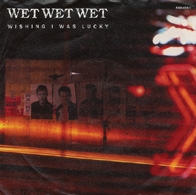
"Wishing I Was Lucky" is the debut single of Scottish band Wet Wet Wet, released as the lead single from their first album, Popped in Souled Out (1987). Recorded for £600 in Edinburgh, it was released in March 1987 and was their first hit, peaking at No. 6 on the UK Singles Chart and No. 10 in Ireland. The following year, the song reached the top 20 in Belgium and the Netherlands, while in the United States, "Wishing I Was Lucky" became the group's first of two songs to chart on the Billboard Hot 100, peaking at number 58.

"Sweet Little Mystery" is a song by Scottish soft rock band Wet Wet Wet. It is the fifth single from the band's debut album Popped In Souled Out (1987), released on Phonogram Inc. Records. The success of the song drove it to number five on the weekly UK Singles Chart the same year as its release. The following year, the song became an international hit, entering the top 20 in Belgium, France, Ireland, Netherlands and New Zealand. Its peak positioning in numerous weekly charts around the globe marked its contributions to the soft-rock genre which dominated the era.

"Living in a Box" is a song by the British band of the same name, released on 23 March 1987 as their first single from their self-titled debut album. It was the group's biggest hit single along with "Room in Your Heart" (1989), reaching No. 5 on the UK Singles Chart. "Living in a Box" became the group's only top-40 hit in the United States, peaking at No. 17 on the Billboard Hot 100. The song was later covered by Bobby Womack; his version reached No. 70 in the UK.
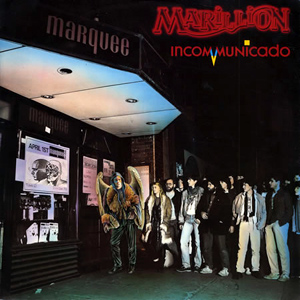
"Incommunicado" is a song by British neo-prog band Marillion. It served as the lead single from their fourth studio album, Clutching at Straws (1987). Released on 11 May 1987, it reached number six on the UK Singles Chart, becoming the band's third top-10 hit and their last until 2004's "You're Gone". It also became a top-40 hit in Ireland, the Netherlands, Switzerland, and West Germany, as well as on the US Album Rock Tracks chart. It has been described by music writer Paul Stenning as "the most original commercial composition of all time."
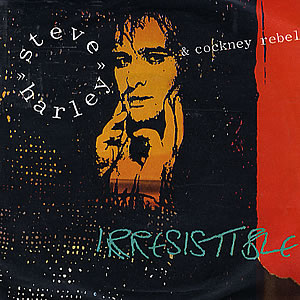
"Irresistible" is a song written and recorded by British singer-songwriter Steve Harley. It was released three times as a single; the first being in 1985 as a non-album single under his band's name Steve Harley & Cockney Rebel. In 1986, a remixed version of the song was released by Harley as a solo single in the UK, and in 1992, he re-released this version as a single in Europe from his solo album Yes You Can. "Irresistible" was written by Harley and produced by English producer Mickie Most.

"Live It Up" is a song by Australian rock band Mental As Anything, released in May 1985 in Australia and then in Europe and the United States in 1986 and 1987 after the song's appearance in the film Crocodile Dundee. At the 1985 Countdown Australian Music Awards, the song won Best Single.

"Home Town" is a song by the British new wave musician Joe Jackson released on Jackson's 1986 live album, Big World. Written as an ode to his home of Portsmouth, "Home Town" was later released as the follow-up to his politically-charged single, "Right and Wrong". Despite its lack of chart success, the song has since attracted positive critical reception.

"I Believe in You" is a song by English band Talk Talk, released by Parlophone in 1988 as the only single from their fourth studio album Spirit of Eden. The song was written by Mark Hollis and Tim Friese-Greene, and produced by Friese-Greene. "I Believe in You" peaked at number 85 in the UK Singles Chart.

"Heartbeat Like a Drum" is a song by English new wave band A Flock of Seagulls, released by Jive in 1986 as the second and final single from their fourth studio album Dream Come True. The song was written by Mike Score, Ali Score and Frank Maudsley, and produced by Mike Score and Wayne Brathwaite.

"Winter" is a song by Scottish band Love and Money, which was released in 1991 as the third and final single from their third studio album Dogs in the Traffic. The song was written by James Grant and produced by Steve Nye. "Winter" reached No. 52 in the UK Singles Chart and remained in the Top 100 for two weeks.

"The Word Is Out" is a song by American singer Jermaine Stewart, which was released in 1984 as the lead single from his debut studio album The Word Is Out. The song was written by Stewart, Julian Lindsay and Greg Craig, and produced by Peter Collins. "The Word Is Out" peaked at No. 41 on the US Billboard Hot 100 in March 1985.

"Me and My Foolish Heart" is the debut single by English band Johnny Hates Jazz, released by Rak in 1986. It was written by Phil Thornalley, Calvin Hayes, Iain MacDonald and Mike Nocito, and was produced by Hayes and Nocito. The song was included on the band's 1988 debut album Turn Back the Clock as "Foolish Heart".

"Shadows of Love" is a song by new wave duo Wax, released by RCA in 1986 as the third single from their debut studio album Magnetic Heaven. The song was written by band members Andrew Gold and Graham Gouldman, and produced by Phil Thornalley.
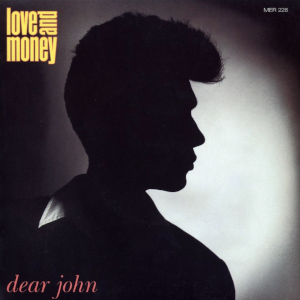
"Dear John" is a song by Scottish band Love and Money, released in 1986 as the second single from their debut studio album All You Need Is.... The song was written by James Grant and produced by Tom Dowd.
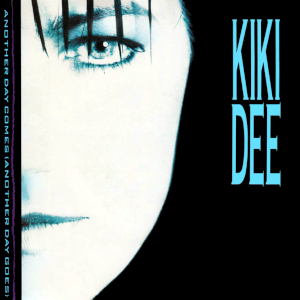
"Another Day Comes (Another Day Goes)" is a song by English singer Kiki Dee, released in 1986 as the first single from her eighth studio album Angel Eyes. The song was written by David A. Stewart and produced by Stewart and Patrick Seymour.

"The Loser Gets to Win" is a song by English singer Kiki Dee, released in 1983 by EMI as a non-album single. The song was written by Dee, Harry Bogdanovs and Gary Osborne, and produced Elton John and Osborne.
"Prospect Street" is a song by Scottish pop band The Big Dish. Written by lead singer Steven Lindsay, the song was originally recorded with producer Paul Hardiman and released as a non-album single in 1985. A re-recorded version with Ian Ritchie as producer was included on the band's debut studio album Swimmer and was released as the album's second single in 1986.

"Two Hearts" is a song by English singer and musician John Parr, released in 1986 as a single from the soundtrack of the 1986 American sports drama film American Anthem. The song, written and produced by Parr, was also included on Parr's second studio album Running the Endless Mile (1986).



















